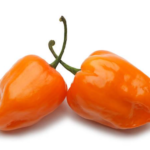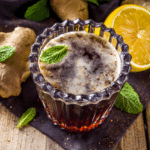Navratri depicts the nine forms of Devi Durga. Navratri is that part of the year when Maa Durga comes to life and devotees observe fasting to seek her blessings. Navratri means nine nights when Maa Durga is worshipped in different parts of India. There are four major Navratris in the Hindu calendar – ‘Chaitra Navratri’ during the summers and ‘Sharad Navratri’ during the autumn. The remaining Navratris are Gupt Navratri which are not so commonly practiced. Fasting is a common practice to perform pujas in the Hindu household. In the northern and western parts of India, Navratri is followed dedicatedly.
Why do people fast during Navratris?
People fast during the rituals of Navratri as their dedication to Mother Goddess Durga. It is a common belief that fasting during Navratris purifies the human body and soul. Fasting or vrat is observed among the community having restrictions on intake of certain food habits during the festivity. This blog will discuss the different spices and herbs that we can have during Navratri.
Spices and herbs allowed in Navratri fasting
During Navratri, the devotees can have some special foods like singhare ka atta, kuttu ka atta, ragira ka atta, vrat ke chawal, and others. To make these food items, you can use the following spices and herbs:
- Cumin (Jeera) / Cumin powder (jeera powder)
- Rock salt (sendha namak) – Common salt is a strict no during Navratris, so use rock salt instead.
- Black pepper powder
- Ginger – You can use both dry as well as fresh root ginger. There is also no restriction to use dry ginger powder.
- Dry pomegranate seeds (anardana) – You can easily make raita or chutney using the seeds as a souring agent.
- Green chili (hari mirch)
- Carom seeds (ajwain)
- Green cardamom (chhoti elaichi)
- Cloves (laung)
- Cinnamon (dalchini)
- Nutmeg (jaiphal)
- Black peppercorns (sabot kali mirch)
These are the herbs and spices that are approved by the community widely. You can easily use these herbs and spices to prepare delicacies without interfering with religious sentiments.
Spices and herbs that are used by some and not by some during Navratri vrat
Providing you the list of spices and herbs that some communities use during the Navratri vrat. Again some communities prefer to stay away from the following spices and herbs while fasting for Navratri.
- Dry mango powder (amchur powder) – Some people use amchur powder even red chili, chaat masala. But some communities prefer not to abide by using spices while the Navratri function is on.
- Coriander (dhania)
- Mint leaves (pudina)
- Curry leaves (kadi patta)
- Black salt (kala namak)
The above list shows the herbs and spices that have a confusion whether to include such things while fasting for Navratri. It is better to check out with the senior members in the family whether to include such things during Navratri vrat.
Herbs especially meant for Navratri
These are the nine special herbs bearing the name of Maa Durga. The herbs have medicinal values and you can have them even during the Navratri vrat.
Shailputri
It is one of the names of Devi Durga. The herb has ayurvedic components and is useful to treat various ailments.
Brahmacharini
The herb is popularly known as Brahmi and people can use it during their Navratri vrat. Some people even worship the herb before consuming it.
Chandraghanta
A useful herb you can cook during Navratri. The herb has medicinal value like useful to treat obesity, enhancing stamina, and improving heart condition.
Kushmanda
Kushmanda is used to prepare sweet dishes like ‘Petha’. These sweets are quite popular in North India and people have these sweets to break their fast.
Linseed
Linseed or alsi is a well-known herb in Ayurveda. You can consume the herb daily and Navratri is no such exception.
Katyayini
Another herb synonymous with Devi Durga and you can have it even during Navratri fasting.
Kalaratri
It is a Nagadaun herb and its consumption keeps you away from various ailments.
Tulsi
It is a household herb in the Hindu household. Having a tulsi leaf with food is considered healthy.
Siddhidatri
It is a healthy herb that you can have even while fasting during Navratri.










